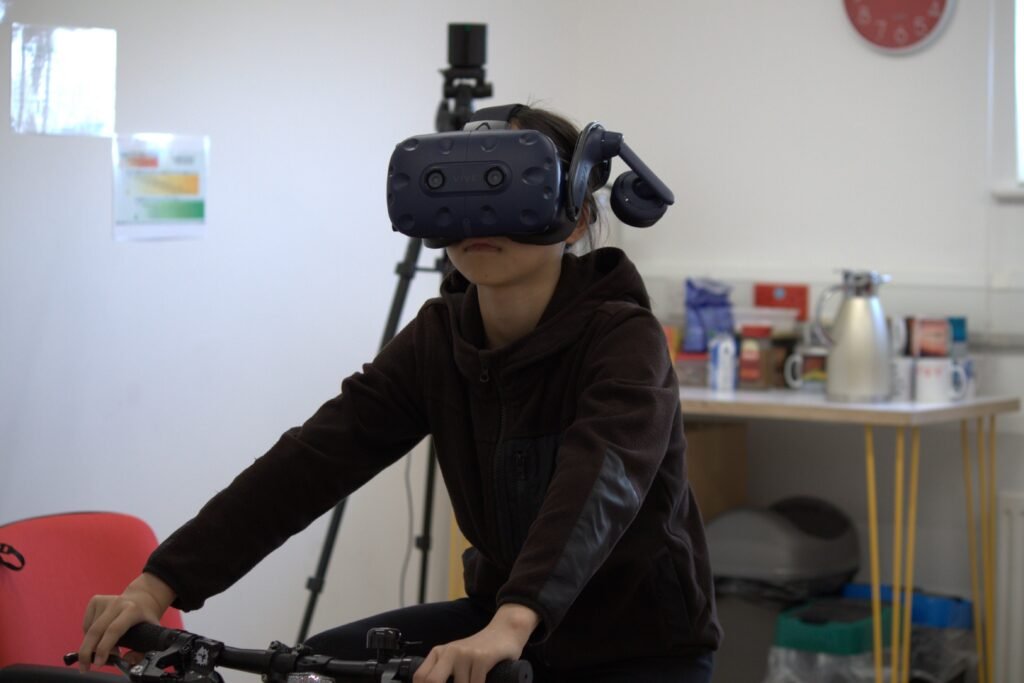
Can immersive reality training support Bikeability cycle training?
In partnership with Brunel University and The Bikeability Trust, Outspoken Training have run two studies in Cambridge and Peterborough to evaluate this link.
The research study has been targeted at pupils who have already completed Bikeability Level 2 training to see if immersive reality can improve their hazard awareness and observation skills. Over 2 visits, each child cycled 5 virtual routes during which they were asked to look around, including behind, identify hazards and respond to questions from an instructor. Either side of this, the child cycle actual on-road routes in real life environments with an instructor to see if the immersive reality training has affected their riding ability.
The initial feedback suggests that the children who received immersive reality training were better in demonstrating the four key skills of Bikeability:
- Observation: Being aware of surroundings and the actions of others
- Position: Choosing and maintaining the most appropriate place to ride
- Communication: Being able to communicate intentions clearly
- Priorities: Following priority rules in line with the Highway Code
Kieron, Managing Director, said:
“At Outspoken, we are great believers in the benefits of technology to enhance our training on participants. Whilst virtual reality training will never be a full replacement for realistic, real-life on-road cycling, there are many benefits to it. These include instilling good habits such as observation skills whilst boosting participants confidence before they head out for real-life training. We look forward to hearing the results of the study.”
The hope is that Immersive Reality training can help support Bikeability training by better preparing riders to cycle on residential roads for Bikeability Level 2 or more complex roads and junctions at Bikeability Level 3. We will post a link to the final report once it is released.
